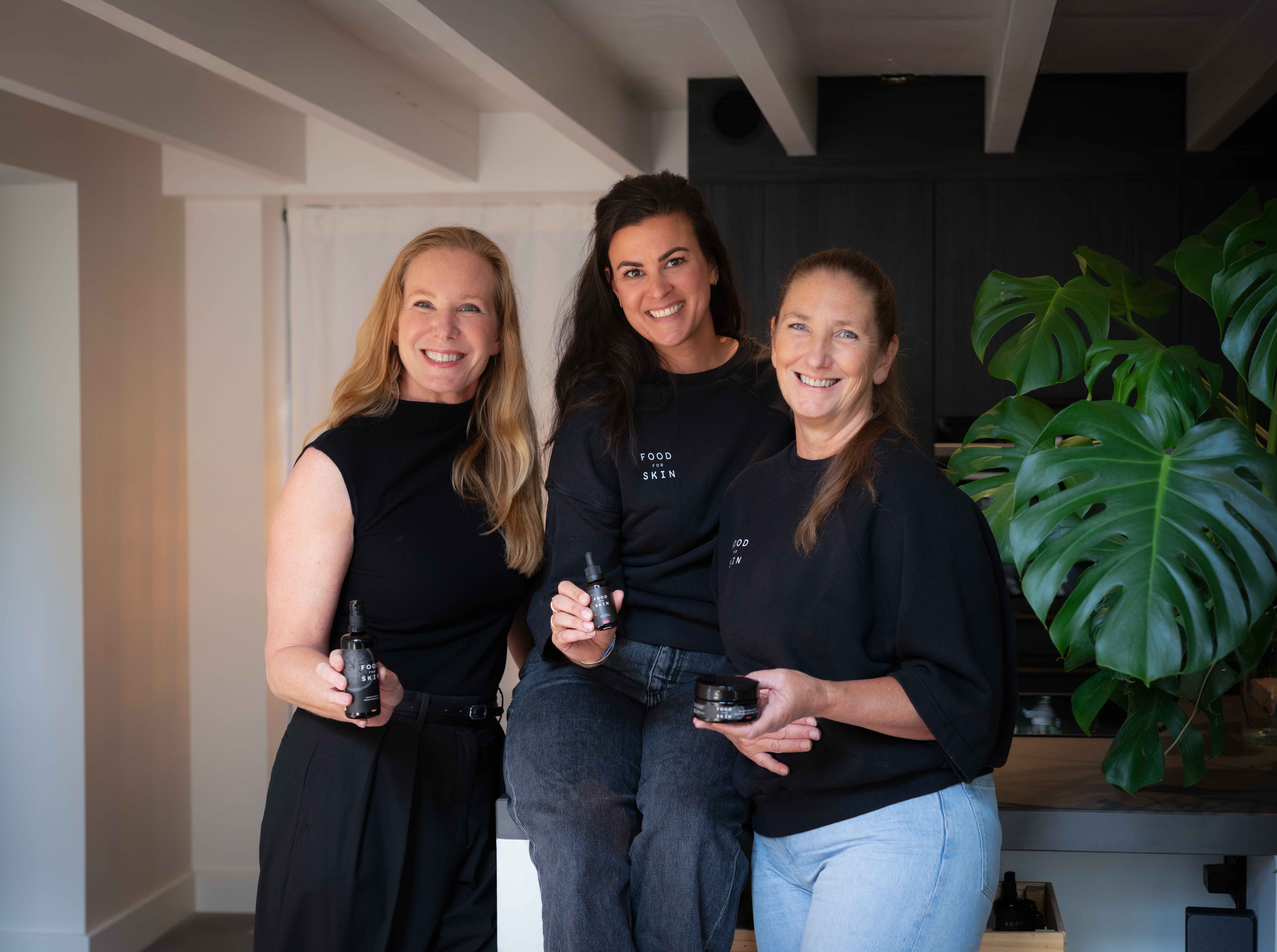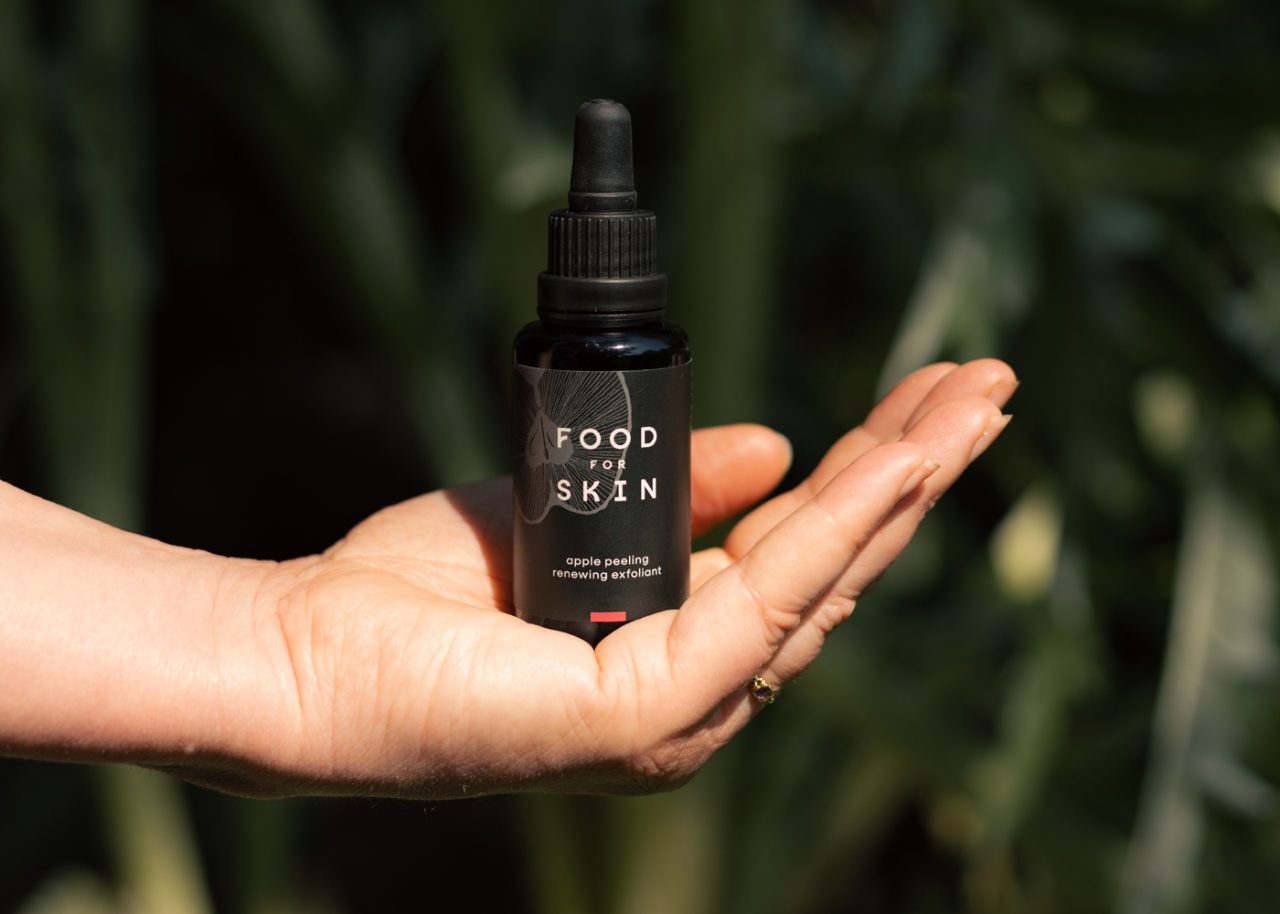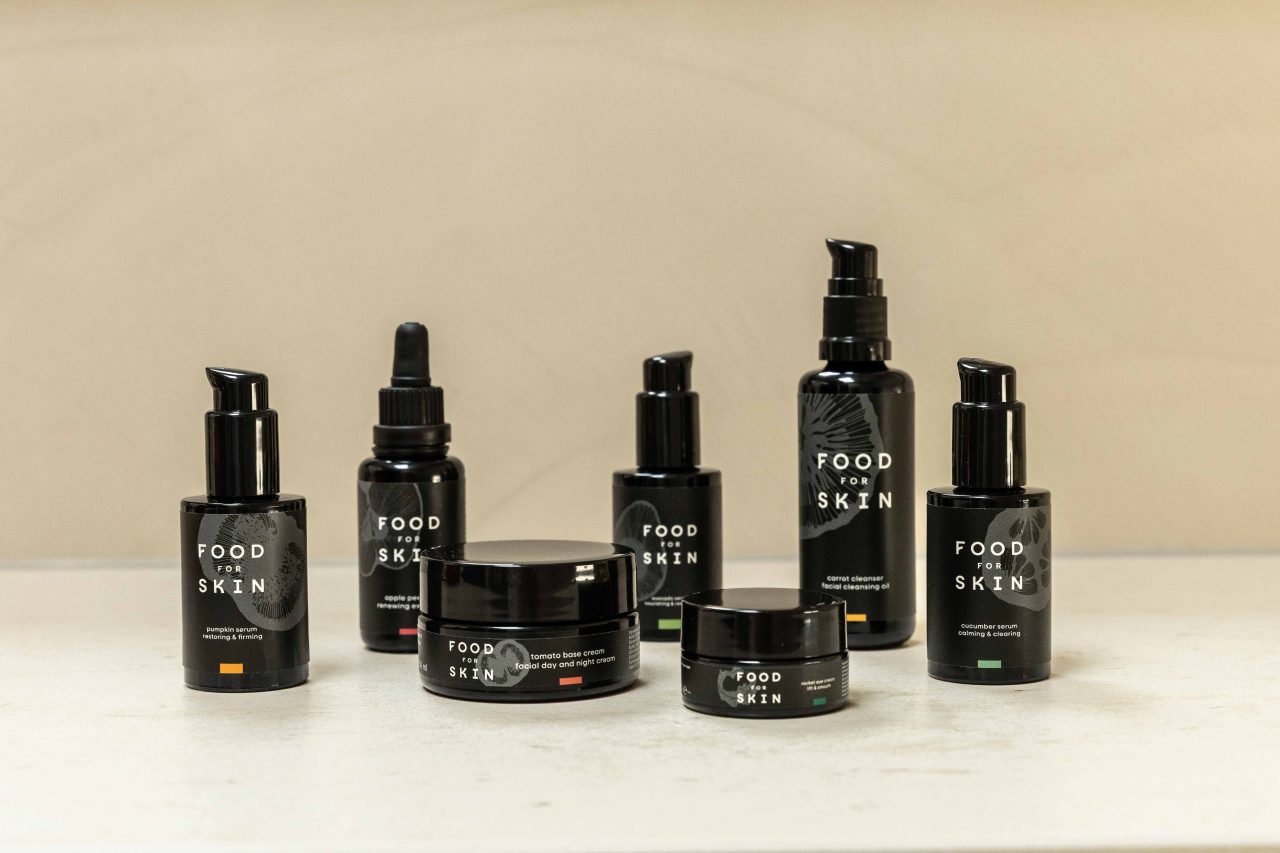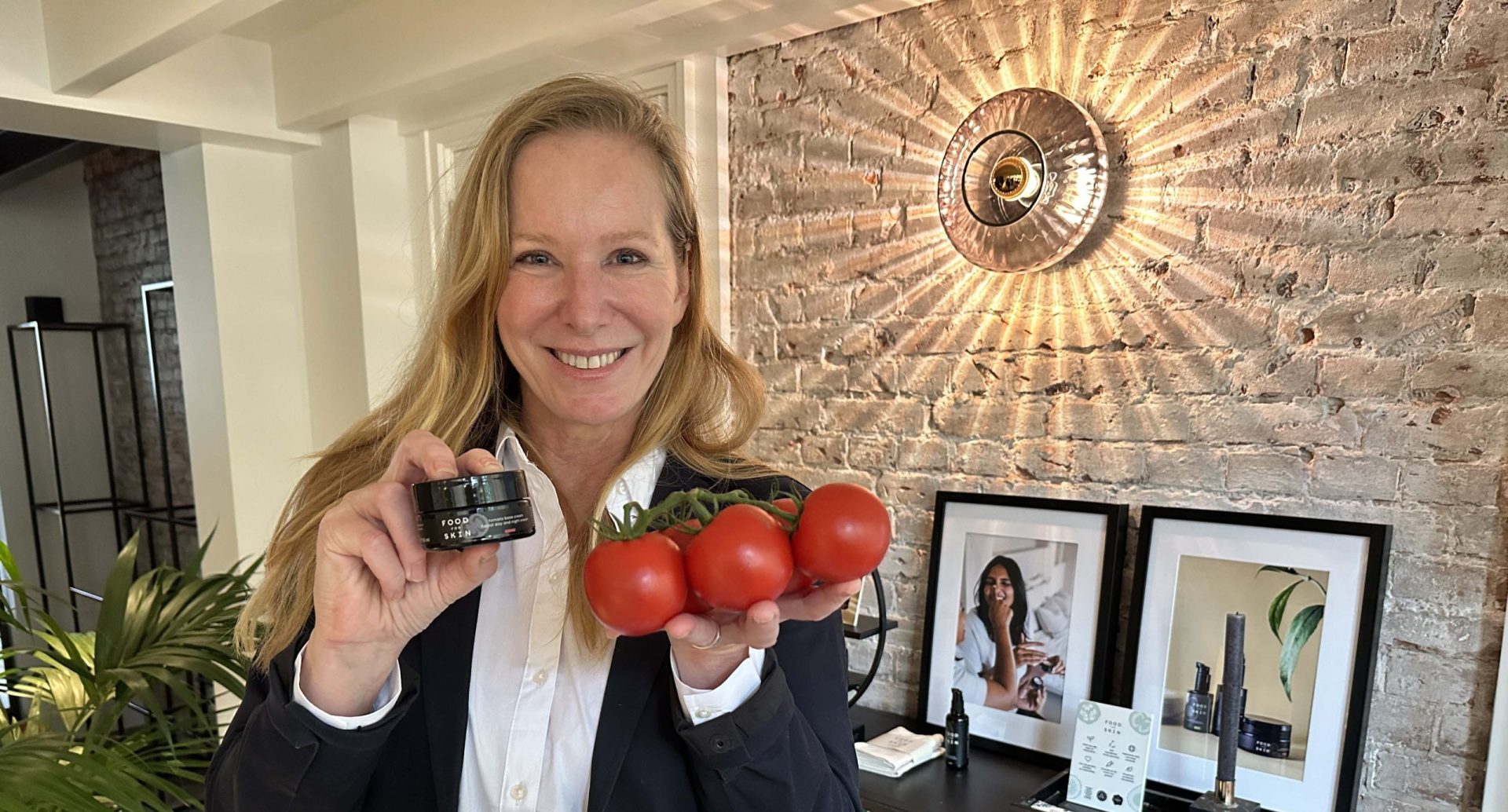From carrot to miracle cream: this is the beauty revolution of Food for Skin
When sisters Cathy Molenaar and Angela Ursem undertook a personal quest to source sustainable, high-quality skincare products, their search ended in disappointment. Now, as founders of the sustainable beauty brand Food for Skin, they have shown that it’s possible for a beauty industry to manufacture honest, natural care products that have minimal impact on the planet.
A dissenting voice
Unfortunately, the beauty industry is still riddled with false claims, “greenwashing” and empty promises. “Products are often full of mysterious, synthetic ingredients that may not only be harmful to the skin in the long run, but also place a heavy burden on the environment because these substances, such as micro-plastics, are not biodegradable.”
Cathy and Angela felt this had to change. Five years ago, they decided to take matters into their own hands. With Food for Skin, these two ladies are changing the cosmetics industry from the inside out by offering 100% natural products. They are using high-quality oils and extracts from waste tomatoes, carrots, avocados, pumpkins, cucumbers and broccoli to provide maximum skin nourishment with minimal impact on the planet. DOEN Ventures is supporting this local impact maker in their mission and recently invested in the sustainable brand along with Henk Jan Beltman’s Genuine Business B.V. and the Rabo Foundation. This will allow Food for Skin to accelerate its impact.
How important is the investment you’ve received for the future of Food for Skin? And what will you do with it?
With the investment from DOEN Ventures, Genuine Business B.V. and funding from the Rabo Foundation, Food for Skin can build a strong foundation of knowledge and financial resources to become a leader in the high-quality, responsibly produced skincare industry. This will allow us not only to expand the team and empower more people in the supply chain, but also to develop new products. For example, we are currently working on two such products: soap and a shower oil. We’ve been testing them extensively for a while now.
In the future, we want to reach even more consumers, both in the Netherlands and in Europe, so we can provide the maximum skin benefits for as many people as possible while having minimal impact on the planet. In 2026, we’ll continue to focus on the Dutch market. We don’t want to make the mistake of focusing on other countries too quickly. We prefer to build the team here first. We like to do things right. When we go abroad, we are not going to do that by halves, but with a sound, well-considered plan. We want to expand year by year, country by country.
Does that mean we’ll soon see Food for Skin in the shops?
We’re currently in 15 stores, and 15 beauty specialists in the Netherlands are using our products. Yet that is not an active strategy. They approached us directly for a partnership. Our primary focus for now remains on reaching and serving our online community as well as possible. A key reason for this is that we can share our stories effectively online, and we consider that just as important. We started with an ideological basis and we truly want to change the market. As a manufacturer, we believe we have a responsibility for an honest product. Online is currently the most interesting growth channel for us. It’s also ideal for collecting a lot of data in a relatively short period, allowing us to steer and forecast. This ensures a steady business.
The first three years after we launched were quite different. Back then, we relied mainly on publicity, which led to enormous peaks, after which things quietened down again. Because we started the company ourselves with our own money, these peaks and troughs sometimes caused a lot of tension. We didn’t want to look for funding until we were well established and essentially wouldn’t need it. And that moment has now arrived. We’ve now reached a point where we’ve established strong foundations and are ready for the next step. And who knows, in the longer term, a major retail partner might join us. But for us, it’s important that that partner fully aligns with our philosophy and DNA, so we’re not rushing into things.
The investment also allows you to further reduce food waste by setting up local upcycling projects. Can you tell us more about that?
Absolutely! Our products are 100% natural. Not 98%. This gives consumers clarity and the assurance that everything is biodegradable – meaning that the product can be broken down into simple, harmless substances through natural processes. We also want our products to be as circular as possible without compromising on quality. We’re going to minimise wastage as much as possible by using waste from the food industry as raw materials for our products. This will reduce CO2 emissions. This means we’ll deplete the Earth’s resources less, which aligns well with our personal motivation to extract as much value as possible from what is already available.
For one of our upcycling projects, we’re working with a local farmer who grows pumpkins for Halloween. Those that are not sold are very suitable for cosmetic use after being dried and pressed in the Netherlands. We’re also looking for other projects that can accelerate our circular economy. For example, we’re also working with a factory in Italy that produces pasta sauces. Some of these beautiful tomatoes would normally be fermented or end up as animal feed. Now they go to a cosmetics laboratory where the oil is extracted and thus given added value. This means that, to produce the beneficial antioxidant lycopene, used in many cosmetic products, no additional tomatoes need to be grown; we use what’s already there.

As a fund of the Postcode Loterij and the VriendenLoterij, the DOEN Foundation offers financial support, connections and a communication platform to pioneers who want to make a difference. The Fair Future Challenge is one such initiative where we support impactful entrepreneurs with sustainable and socially inclusive products and services. Food for Skin was a finalist in the Fair Future Challenge. What did you gain from this? How has this contributed to where you are now?
We can look back on the Fair Future Challenge with a very positive feeling. Besides meeting so many other sustainable entrepreneurs who, like us, intrinsically believe in making an impact, it immediately resulted in securing a significant investment. It has also had an effect on the visibility and brand awareness of Food for Skin. Being in the finals has given our product credibility, also with other sustainable companies.
Other participants inspired us, and we recognised many of the challenges others faced. That connects us. For example, after the Fair Future Challenge, Goodoo persevered and significantly improved its positioning. You feel empowered when you see others working so hard on a product that’s just a little bit different from conventional standards. We need each other to ultimately make the impact we envision. That’s the bigger goal.
The reviews on your website are glowing. What’s your favourite product from your current line, and why?
I’m right behind all Food for Skin products, but there’s one product that no one can ignore and that is the Tomato Base cream. Firstly, because it’s a multifunctional product that nourishes and protects the skin. It contains 27 natural ingredients, allowing you to skip the 12-step skincare routine. What’s also unique about this product is that it’s made from 88% upcycled materials. This cream proves that high-quality cosmetic products can go hand in hand with a better world.
By the way, the packaging for all our products is 100% recyclable. Sometimes that’s a challenge and is not so easy. Nevertheless, we always continue to look for the most sustainable solutions. For example, we omit the extra box when ordering through our website. Packaging is the biggest polluter in the beauty industry. But it’s certainly the best way to communicate all the information. This is now on the label, because we really want to limit waste. Our glass jars and bottles are already made of 50% recycled material and are 100% recyclable in the bottle bank after use. The purple glass we use means fewer preservatives are needed in the product itself to ensure its shelf life. This glass blocks UV radiation, making the contents naturally last longer. This way we make our footprint as small as possible.
Curious about the honest and radically simple Food for Skin routine? Take a look at the website.




